Perché la gente colleziona francobolli
Perché la gente colleziona francobolli
Un collezionista di francobolli acquista e raccoglie i francobolli per diversi motivi. Credete o no, la raccolta di francobolli è ancora considerata uno dei passatempi più popolari in tutto il mondo. Ci sono ca. più di 20 milioni di collezionisti di francobolli in tutto il mondo.
Collezionate francobolli? Perché? Di seguito sono riportati alcuni dei motivi più comuni per la raccolta di francobolli.
Motivi per cui la gente raccoglie francobolli
-
Semplicemente per svago divertimento o piacere
Tutti i collezionisti di francobolli sono d'accordo (anche se non tutti lo ammetteranno) che ciò che li motiva a raccogliere i francobolli è la pura e semplice gioia che provano. Il processo di ricerca, individuazione e acquisto di francobolli comuni, nuovi, vecchi, rari o altri tipi di francobolli necessari per completare un determinato tipo di raccolta, dà al collezionista un senso di orgoglio, successo e realizzazione. Per alcune persone, solo il divertimento puro e semplice della ricerca (simile alla caccia al tesoro) e il momento in cui si trova effettivamente con successo un particolare francobollo, è un motivo sufficiente per collezionare francobolli. Clicca qui per vedere francobolli rari.
I collezionisti di francobolli godono quando, mettendo in esposizione le loro collezioni, vengono lodati dalla famiglia, dagli amici e dagli altri collezionisti. Allo stesso modo, i collezionisti di francobolli che presentano siti web personali che mostrano la loro collezione, provano una sensazione di gioia ogni volta che qualcuno lascia un feedback positivo.

Ci sono quelli che raccolgono francobolli semplicemente perché sono incuriositi e interessati alle varie immagini, disegni e colori. Proprio come chi raccoglie oggetti d'antiquariato o quadri, queste persone lo fanno semplicemente per il loro piacere visivo, la semplice gioia e la soddisfazione che sentono ogni volta che guardano la propria collezione di francobolli.
-
A prezzi accessibili tutti possono acquistarli
La gente raccoglie i francobolli perché è un hobby economico/accessibile e perchè tutti possono effettivamente comprarli. Clicca qui per acquistare i francobolli. La maggior parte di noi cerca cose interessanti ma convenienti, soprattutto durante i periodi di recessione. Può sembrare strano, ma oggi molti, nonostante la presenza di alta tecnologia, riscoprono vecchie attività come il lavoro all'uncinetto o a maglia, il giardinaggio, fare biscotti e naturalmente la raccolta di francobolli. I cosiddetti hobbie-vecchio-stile sono tornati e sono ora considerati in voga. Clicca qui per leggere sul collezionare-francobolli oggi.
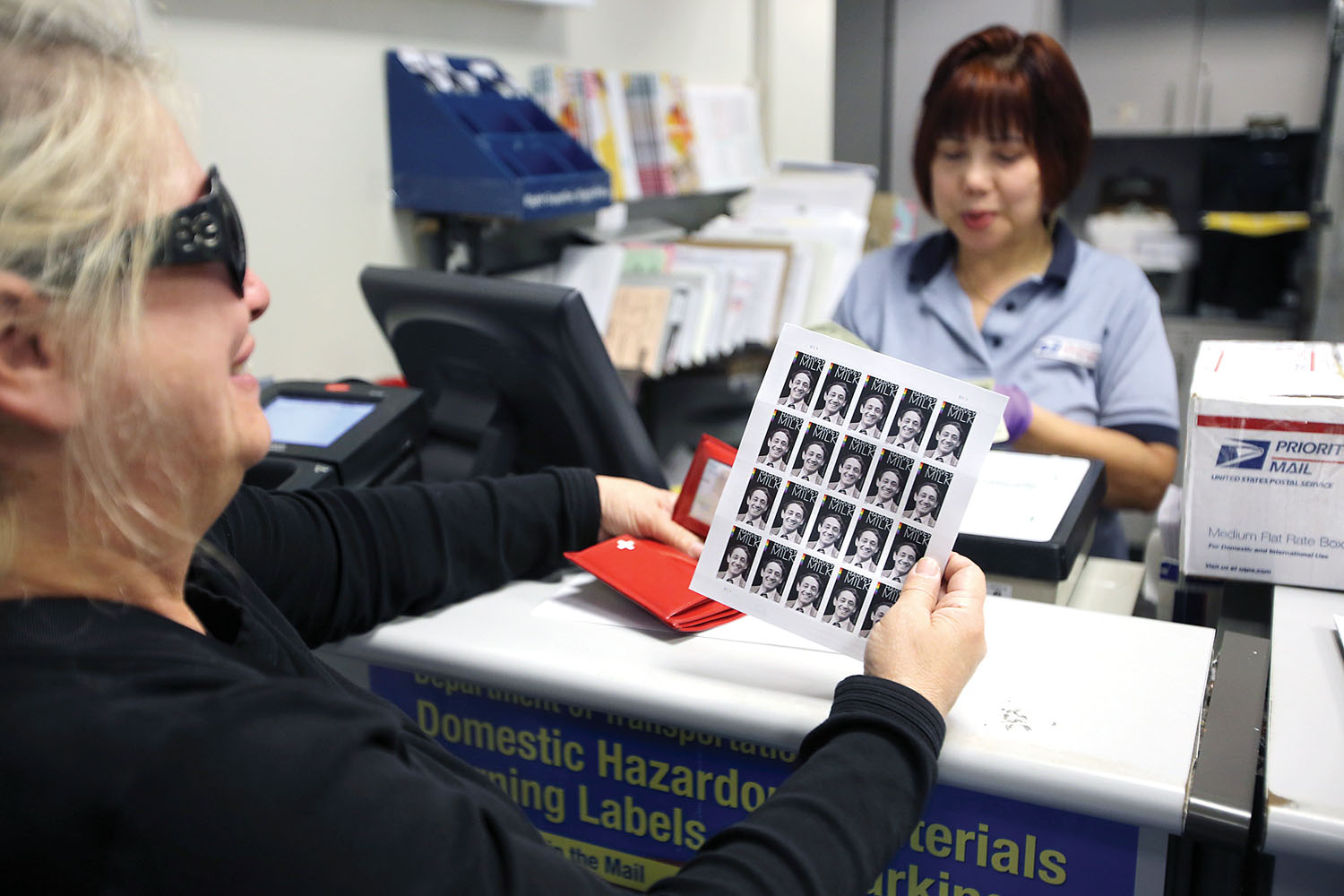
-
Benefici educativi e valore storico dei francobolli
People collect stamps because these small pieces of paper represent history and a whole lot more, actually. It teaches and educates people about history, art, geography, architecture, environment, mythology, movies, music, religion, culture, science and technology, modes of transport, space, sports, aviation, animals and plants, famous people, events, and many more. For some individuals, collecting stamps is based on the desire to acquire and keep a living history of their country. Rare stamps that are more than a hundred years old can help one to obtain a piece of living history right at their fingertips. Clicca qui per visualizzare i francobolli rari.
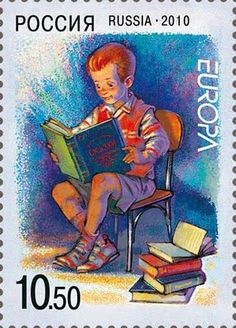
-
Un modo per connettersi o rimanere in contatto con persone all'estero
La gente raccoglie i francobolli perché li collega a persone provenienti da altri paesi in tutto il mondo, compagni di penna e parenti che vivono all'estero. Per una piccola quantità di denaro, grazie ai francobolli, puoi inviare una lettera in qualsiasi posto sulla terra, anche se è la più lontana e più desolata zona dove vivono esseri umani. L'esistenza di francobolli e lettere porta l'umanità più vicina. Credeteci o no, il concetto di avere compagni di penna esiste ancora oggi, seppur un po' moderni (da ora possono comunicare rapidamente tramite e-mail e siti social). Tuttavia, quando si inviano o ricevono lettere e pacchetti scritti a mano, saranno necessari i francobolli, e questo è uno dei metodi per raccoglierne “strada facendo”. Per chi ha parenti all'estero, è possibile raccogliere i francobolli dai pacchetti, dalle lettere e dalle cartoline inviate. Non solo per far sapere come stanno i parenti all'estero, ma anche per raccogliere i francobolli da aggiungere alla propria collezione.
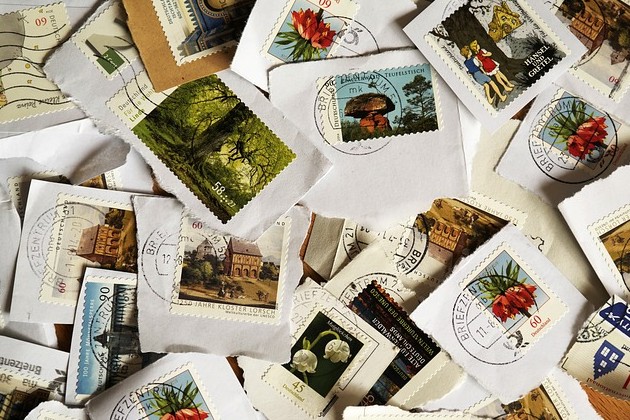
-
Un ottimo modo per incontrare nuovi amici che condividono un interesse comune
Quando la gente raccoglie francobolli, ha l'occasione di incontrare nuovi amici che condividono un interesse comune durante il percorso di raccolta. Possiamo quindi affermare che chi sceglie di collezionare francobolli come fosse un hobby, lo fa anche nella prospettiva di conoscere nuovi amici e avere possibilità di condividere con gli altri le proprie esperienze e conoscenze sulla raccolta di francobolli. Ci sono alcuni che raccolgono francobolli semplicemente per avere l'opportunità di incontrarsi e fare amicizia con altre persone provenienti da tutto il mondo. Attraverso le varie conferenze e incontri di collezionisti che si svolgono ogni anno in molti paesi e la creazione di numerosi forum e siti web dedicati ai francobolli on-line, è assolutamente possibile che un collezionista costruisca la propria cerchia di amici basata proprio su questo hobby.

Si collezionano francobolli come opportunità per migliorare la propria capacità sociale, unirsi a gruppi o club di collezionisti per sentirsi a proprio agio e divertirsi a raccogliere e parlare di francobolli con altri amanti di francobolli.
-
To be passed on to the next generation
Alcuni raccolgono francobolli per lasciare un'eredità "personale" ai loro figli. Puoi dare un'impronta personale alla tua collezione di francobolli per i tuoi figli. Mostrare e raccontare loro quanta gioia ciò ti ha dato. A seconda della prospettiva dei tuoi figli nella vita e se sei fortunato, potrebbero anche desiderare di continuare la tua collezione.

-
Valore sentimentale
For sure, many people can relate to this scenario. If you are one of those who collected stamps as a kid, then you will definitely feel and remember some good ol' nostalgic memories of your childhood. Probably you have inherited a stamp collection from your parents, grandparents, or other relatives. If you do, you will surely fondly remember yourself sitting at the table, scouring over stamps with your mom or dad, or your grandparents. The passion of collecting stamps is transferred from parent to child, and oftentimes, to grandchild.
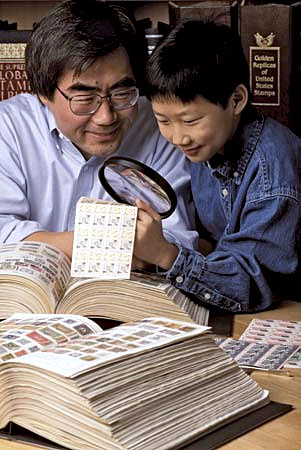
-
To commemorate special events
There are some people who collect stamps for the reason of commemorating special events. Those who are extremely interested in history, called history buffs, may stick to collecting stamps that are specifically designed to commemorate a variety of important events in the history. If a stamp collector is passionate about soccer/football, then he would most likely collect stamps commemorating the World Cup, an international association football competition and a worldwide special event that is held every 4 years.
Below you will see a set of 4 commemorative stamps released during the visit of Pope Francis in the Philippines - January 2015.

-
As another way to show your dedication to real-life interests
Some people collect stamps that feature a particular theme or item. For instance, a person who loves anything and everything about nature may only want to collect stamps that show animals and plants. Similarly, a fan of music may only collect stamps that portray famous musicians or anything that is associated with music such as musical instruments, musical genres, and composers.
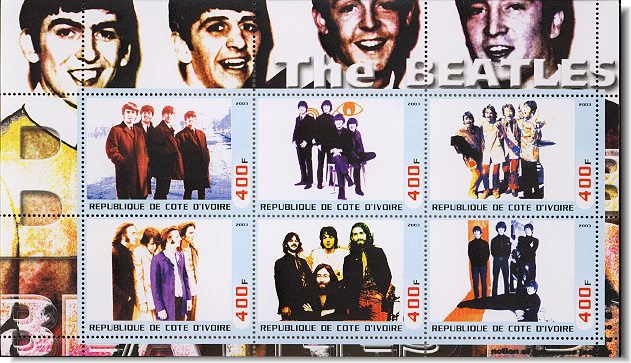
-
As an investment
The first reason mentioned earlier, for some stamp collectors, does not apply to this one. There are some stamps that can be worth a fortune, but stamp collecting as an investment involves a high level of specialization, and in the opinion of most people, takes the fun factor out of it. No wonder why there is a distinction frequently drawn between stamp collectors and the so-called philatelic investors.
Below is an image of a very famous rare stamp, the British Guiana 1-cent magenta postage stamp. Click here to see the most valuable stamps in the world.
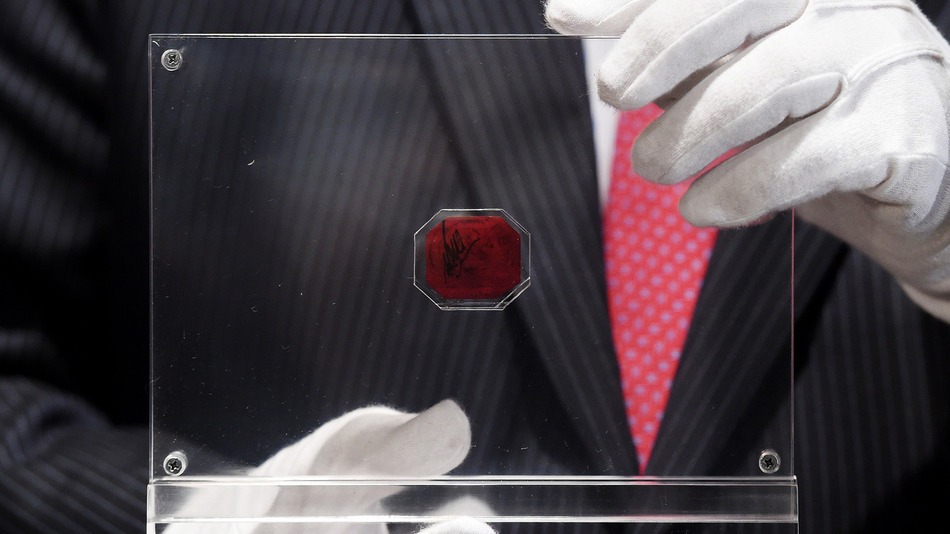
-
Easy to store and does not take up too much space
A stamp collector can collect as much as they can for decades, since there is no limit to collecting these wonderful pieces of paper, and the good thing is, no matter how many you collect, you can only use up a couple of shelves. Of course, there are other hobbies that have this "small space storage" benefit, but only a select few have it clearly as stamps. Most of the collectibles are obviously far bigger and harder to store than postage stamps. A stamp collection containing thousands of stamps can be kept in just 1 album, whereas a collection of a thousand figurines takes up lots of rooms. This also means that when you have a stamp collection and you stopped collecting for reasons such as you are too busy, not interested anymore, or there were many other things that took up your time (this happens with almost all hobbies), it can easily be resumed anytime once you feel interested again.

-
Describes one to be clean, neat, and orderly
Orderliness is associated with cleanliness and comprehensiveness. Only a few hobbies have their own catalogs (such as comic book collecting) and none are as detailed as stamp catalogs. The fact of knowing what you exactly need is appealing to stamp collectors. Also, collecting stamps is neat and clean when compared to most collecting pastimes, and stamps fit in well with modern living situations.

-
As a de-stressor to everyday life
Some people collect stamps as a way to de-stress and unwind at the end of a rather stress-filled and busy day. The time spent searching and filling empty spaces in an album or simply looking at stamps help one to reduce the stress felt on that day. A lot of stamp collectors agree that their stamp albums are a marvelous brain-restorer. The most important benefit to continuing on collecting stamps even into your aging years, is that the hobby keeps your mind active, and an active mind is a young mind. Even if your body gets older and weaker, your mind does not need to. In fact, it should only get wiser and better with age.

Of course, if you are someone who is an obsessive-compulsive stamp collector, collecting stamps may actually increase your stress even more, since you will most probably struggle with your inner self.
-
A perfect way to avoid boredom
Imagine what would people back in the olden days do without stamp collecting. For most people, the world would be a boring and less exciting place. Obviously, non-collectors will not understand, but for those who are really active in this hobby, they know that stamp collecting drives away the boredom in them, and it is a perfect solution to pass the time in a fun way during long winter evenings or rainy days. There is always something to do on a stamp collection -- it is always never finished.

-
Many famous and influential persons are actually stamp collectors themselves
The great thing about stamp collecting is that everyone can collect stamps! Some of the famous and influential persons who are also stamp collectors themselves are: King George V of England, Queen Elizabeth II, King Farouk I of Egypt, Prince Rainier III of Monaco, President Franklin D. Roosevelt, lead vocalist of the band Queen Freddie Mercury, The Beatles member John Lennon, Ayn Rand, Amelia Earhart, Russian tennis player Maria Sharapova, French President Nicolas Sarkozy, and lead guitarist of The Rolling Stones Ronnie Wood.
People of all ages, from different walks of life, love to collect stamps, but why? Whatever their reasons, stamp collecting is totally fun, enjoyable and it is pretty easy to get started. For beginners, they do not need a lot to start their stamp collection -- just a few stamps at a time and a place to store or display them.

